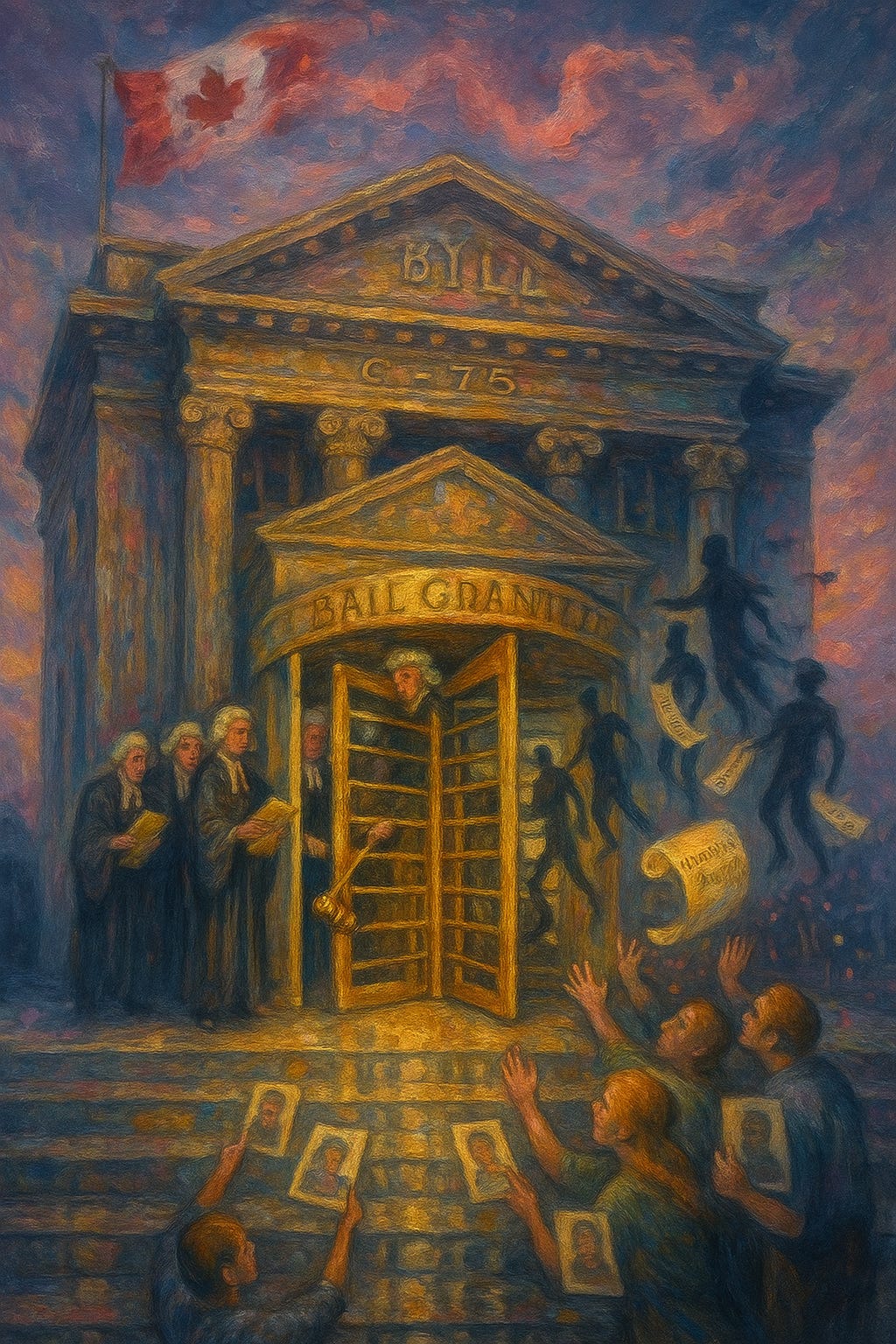Pity Before Justice: The Rise of the Criminal-Victim Myth
A moral autopsy of Canada’s new cult of victimhood.
If you believe in free speech—not the bumper sticker, but the unruly, rabid mongrel that snarls at polite society—then you can help keep it alive here. Every paid subscription buys me time to write without kowtowing to the kind of people who think “problematic” is an argument.
It’s five dollars a month. Canadian dollars. Which means it’s even less than you think—practically pocket lint if you’re south of the border. For that, you’ll get at least three heretical essays a week.
People always say, “Oh, it’s just a cup of coffee.” True. However, when you reach the Substack counter, please select my coffee. I guarantee it’s cheaper than Starbucks, and it comes spiked with the bitterness of reality—foam-free, censorship-free, and worth every loonie. Cheers.
There was a time—not long ago—when a man who killed four people would be treated as precisely that: a killer. Today, he is as likely to be treated as a casualty of circumstance, a passive sufferer in the melodrama of systemic oppression. T…




